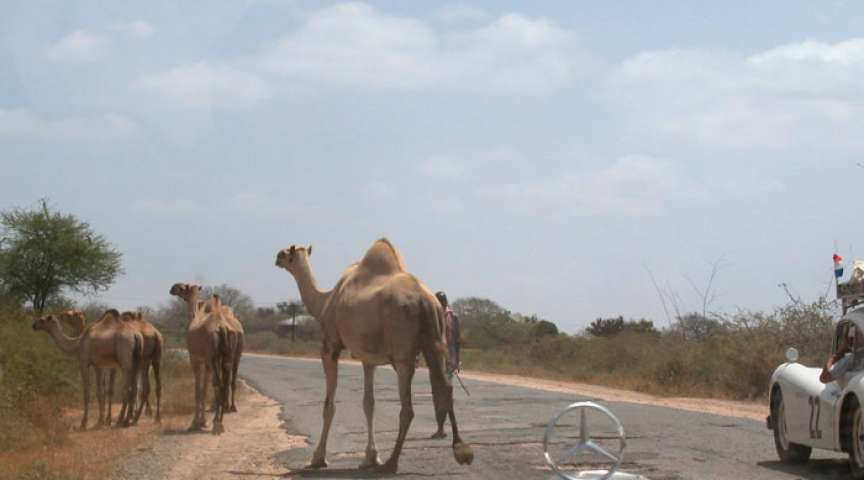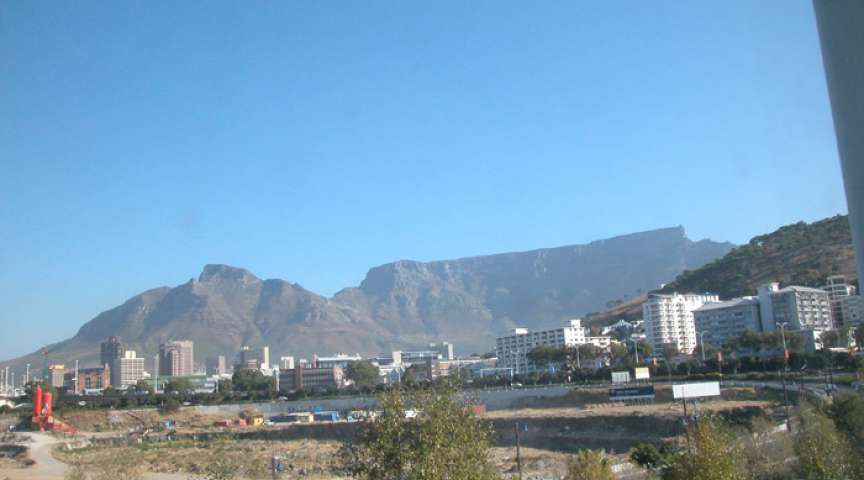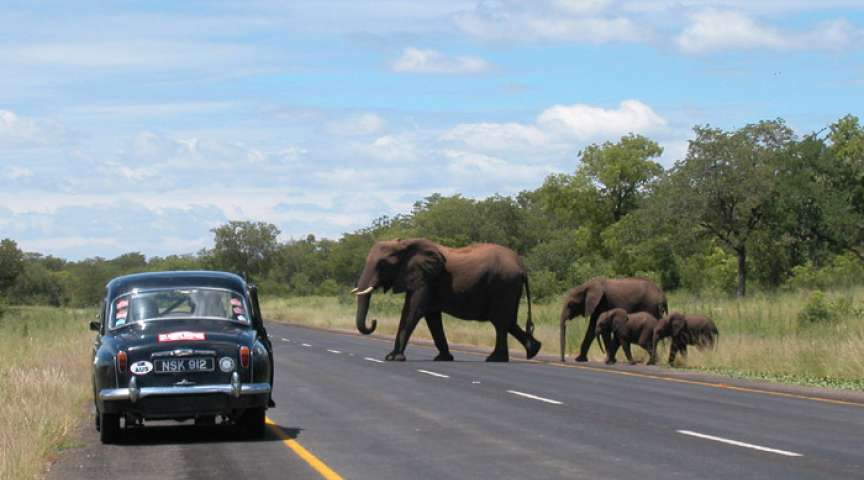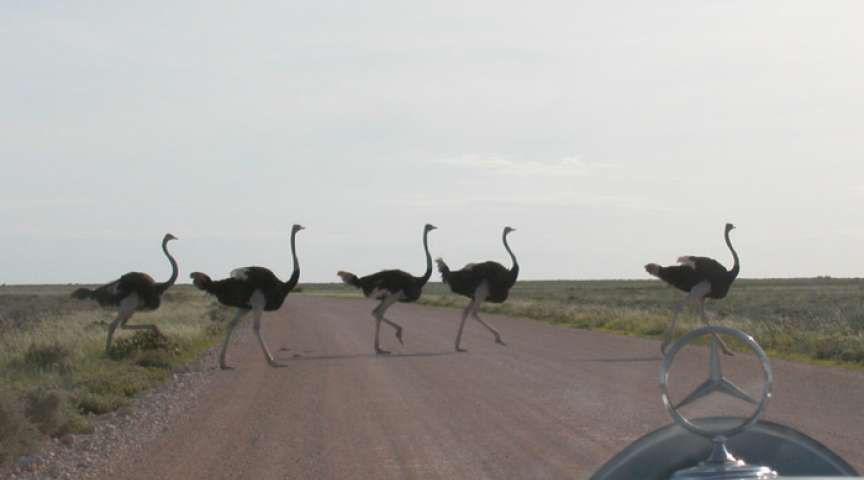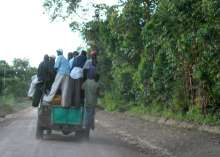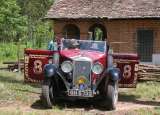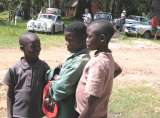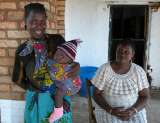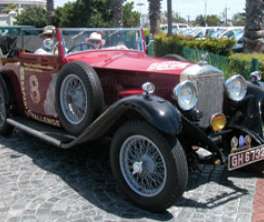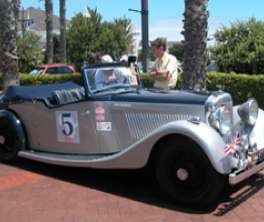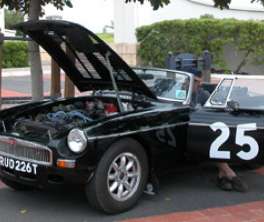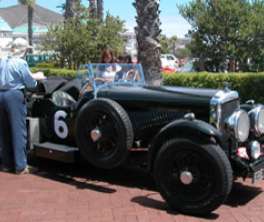Qui dove l’acqua è un bene e l’ombra un privilegio, il vivere quotidiano è soprattutto fatica. Lo vediamo lungo la strada che dallo Zambia ci porta in Tanzania: il mezzo di locomozione più diffuso -oltre ai propri piedi- è la bicicletta. Ma va intesa come possibilità estrema di carico: padre, madre e due figli; oppure ciclista con due cataste di legna; oppure con carichi enormi di carbone che, quando viene la salita, si deve scendere e spingere duro. Il carbone sembra il traffico più diffuso tra i due paesi: nello Zambia c’era verde dappertutto, qui in Tanzania, 40 milioni di abitanti, le foreste sembrano distrutte. Esportare il carbone sarebbe illegale, ma nessuno sembra farci caso. E così chiunque abbia una bicicletta, la utilizza per portare oltre confine un quintale di merce. E pedala, pedala, pedala. Noi siamo arrivati puntuali al controllo di tappa, una vecchia piantagione di caffè riadattata ad albergo. Gradevole piscina, anche se ancor più gradevole era stato il bagno mattutino prima della partenza alle Hot Springs, le sorgenti d’acqua calda di Shiwa. Poi, la strada è andata peggiorando considerevolmente, buche assassine su un asfalto che spesso, nelle deviazione dei lavori in corso, diventava pessimo sterrato. Ma le sospensioni della nostra Mercedes e la considerevole altezza da terra, consentono andature tranquillizzanti.
THE CHARCOAL-BURNERS' LABOURS
Life in this country, where water is a precious good and shade is a rare benefit, is most of all labour. We realised it on the way from Zambia to Tanzania. Bicycles are, besides one’s feet, the first means of transport here. But what they mean by bicycle is its maximum cargo capacity, i.e. father plus mother plus two children or rider plus two stacks of wood or still rider plus such a huge load of coal that when the way climbs they have to get off and pull the bicycle hard on. Coal is the most widely spread trade between Zambia and Tanzania, it seems. Everything around was green in Zambia while in Tanzania (its population reaches 40 millions inhabitants) woods seem to have been destroyed. Coal export is supposed to be illicit here, but nobody seems to care. So anyone owning a bicycle loads it with about 100 kilos coal and crosses the border. They ride and ride all the time. We reached the checkpoint in time today; it’s an old coffee plantation that was restyled into a hotel. There is a good swimming pool, though the bath we took at the Hot Springs in Shiwa in the early morning before setting out was even more pleasant. From there onwards the track went worse and worse as we went on: the road surface was badly damaged, its dangerous holes made it a really bad dusty rocky way at every diversion for road works. But our Mercedes has a good system of suspension and is quite elevated from the ground; this allows comfortable travelling even at a good speed.

